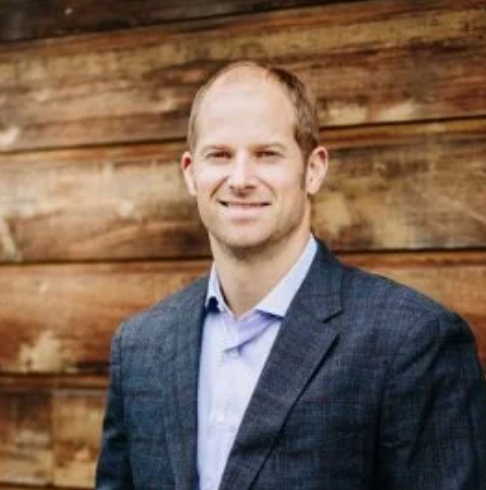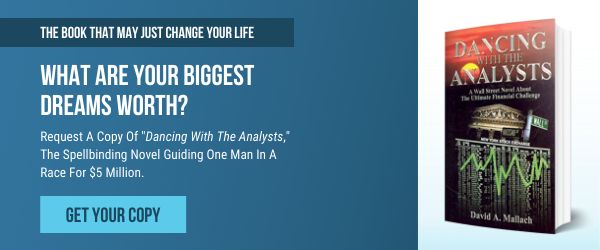When I think about people and their motivation in the realm of work, I think of three categories. The first is a group of people whom we can call ‘employees’ just for the sake of this conversation. There’s nothing wrong with being an employee, by the way, they could very well be business owners. No matter whether they are an hourly wage worker, or if they make a substantial salary, their mindset is to see themselves as “someone who’s making a living,” often to support themselves or to provide for their family. Work is a means to an end, and the end is always outside of work.
The second category in my mind consists of people who also make a living, but who see themselves as consistently moving through a system, advancing, getting ahead. Work to this group is a means to an end, though frequently work itself is the end goal. The incentive is to progress and move up in the ranks to always get better, bigger work.
The third and much rarer category is the group for whom the prior two descriptions don’t even apply. It’s the person who does the work because it’s their calling. The motivation is neither financial nor familial, they’re doing it for a higher purpose. A much bigger vision drives them, and if it happens to provide financial gain, or provide for the well-being of their family, so be it, but that’s not the primary driver for doing the work.
My mentor, David, the person who taught me the investment strategy upon which our firm is based, describes placing trades on behalf of clients as “electricity shooting through his fingers.” I have to tell you that I have that same experience. The day-to-day of implementing the Strategy for our clients truly feels electric to me. I don't care if it's $5 million to open the account or $5,000, I get excited about placing those trades.
What I’m describing is not some sort of power trip that I go on when someone entrusts their money to our firm. It’s closer to the excitement of a toddler, filled with curiosity and delight and awe. Because I don't know what the client’s five-year return will be, but I do know that I am linking them up with an unbelievable amount of opportunity and by pressing the execute button, I’m solidifying their vision. David says that despite forty - it's getting closer to fifty - years in the business, he still feels this way.
I have to admit that when I first got into the financial services business, like so many people who are drawn to this field, my primary motivation was monetary. I would have fallen into the second bucket of workers: someone who wanted to progress through the system and be celebrated for it. I wanted to make money, lots of it, and I wanted to be recognized for making money for myself and for others. I wanted people to know that I was successful, by precisely those measures.
The truth is, I was struggling in the first couple years of my career. I wanted to be someone who was trusted, and I wanted to be given an immense amount of responsibility. At the same time, I felt like I really didn't have anything whatsoever to justify that responsibility. I mean, I had integrity, but at the time I had neither much knowledge of how the markets worked, nor did I have a lot of experience. I didn’t have anything of Tremendous Value to put in front of them. Then David came along and provided fireworks in terms of substance and inspiration.
I remember vividly the moment everything changed for me.
I was in my late twenties, I had met David, read his book, and had long conversations with him. As it all sunk in, it’s remarkable how quickly my prior motivations of fame and fortune faded. I still had the same level of energy, I still had the drive to act, but now I also had something else, something that no one else knew about. I had a strategy, a philosophy, a belief system, something to hold onto in an industry that seems to blow with the wind. It was like I’d discovered the cure to a totally horrible disease (or at least, that’s how I imagine it.) Here I was, walking around the offices of Merrill Lynch (my employer at the time) with this knowledge about a different way to invest, and while it was no secret, very few people appreciated its value. I felt near missionary zeal to bring this philosophy to light, and to put it to work. I had a moment when it became crystal clear to me that it was my job to bring this thinking to people, in order to help them change the course of their lives. I knew then that I would dedicate my career to sharing the Strategy.
It was as simple as that. One moment, one encounter, one idea, and all of a sudden, I knew what I had to do. I had moved into that rare, third category of people who have a calling. This experience always makes me wonder: how is it that people become successful? Is it a product of you, or do you have a defining moment that changes everything for you? I don’t know.
One thing I do know is that you can’t do this work well – the work of helping people realize their vision – without having passion. I guess you could say this about any kind of work, but I can only speak of what I know best, my own line of work. The best financial advisors don’t do it as a job. They don’t do it for income. They don’t do it to get ahead in the ranks. They do it because they feel drawn to a higher purpose. Their passion is a test of their beliefs.
The same could be said for investors. We certainly don’t expect our clients to know the intricate details of the world of finance, nor to share our passion for the markets. But we do find that our most successful clients are passionate about something. They don’t just come to us because they want to make more money, or because they’re chasing a certain return. They come to us because they are believers. They are believers in opportunity for themselves and their families, for their businesses and communities, and for the world at large.
Ben Beck is Managing Partner & Chief Investment Officer at Beck Bode, a deliberately different wealth management firm with a unique view on investing, business and life.

 Benjamin Beck, CFP®
Benjamin Beck, CFP®